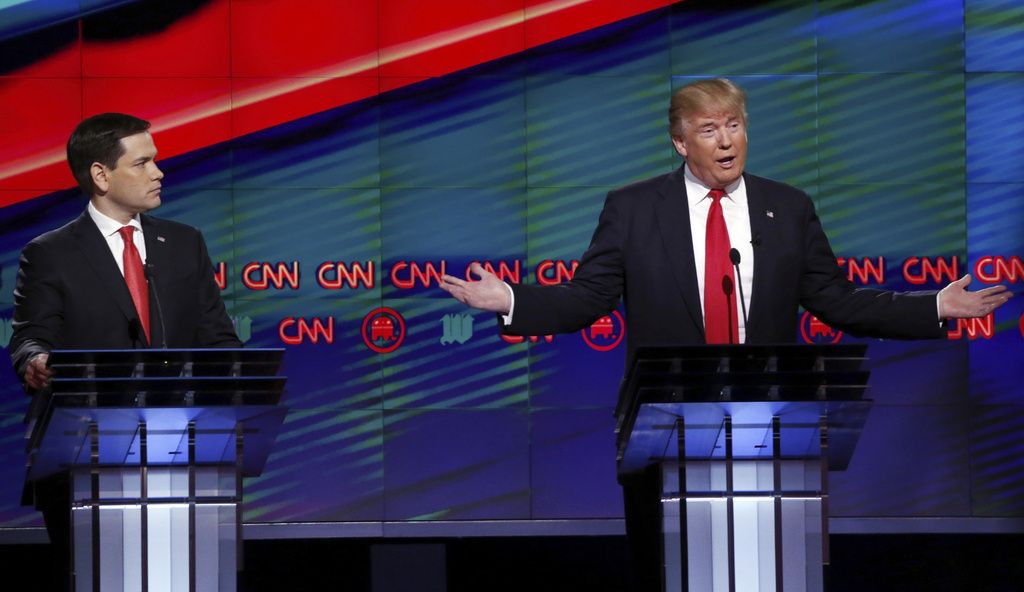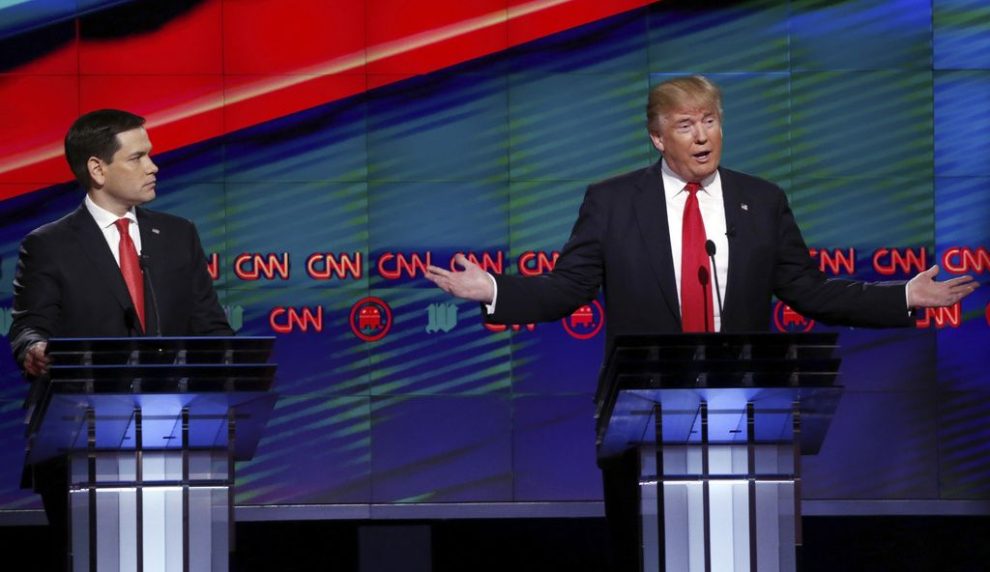The Supreme Court rejected an activist’s effort to trademark the phrase “Trump too Small” on Thursday, finding that the federal trademark office didn’t violate the activist’s First Amendment rights when it declined to register the slogan.
Justice Clarence Thomas delivered the unanimous decision from the Supreme Court on Thursday. The dispute stemmed from plaintiff and T-shirt designer Steve Elster’s plan to mock former President Donald Trump based on taunts between Trump and Sen. Marco Rubio (R-FL) during the 2016 election, who were rivals at the time for the Republican presidential nomination.

Rubio was growing weary of Trump’s taunts calling him “Little Marco,” so he pointed out the size of Trump’s hands during a March 2016 campaign stop. “You know what they say about men with small hands,” Rubio told a crowd in Salem, Virginia. “You can’t trust ’em.”
When Elster sought to register the trademark with the U.S. Patent and Trademark Office in 2018, he was rejected on the basis that people would associate the word “Trump” with the then-president.
CLICK HERE TO READ MORE FROM THE WASHINGTON EXAMINER
The U.S. Court of Appeals for the Federal Circuit ruled against the trademark office in a February 2022 ruling, saying the denial violated Elster’s free speech rights under the First Amendment.
The Justice Department under President Joe Biden asked the Supreme Court to take up the case, saying in court filings that for decades, the trademark office has refused to register trademarks that incorporate the name of a living person absent written consent.
























